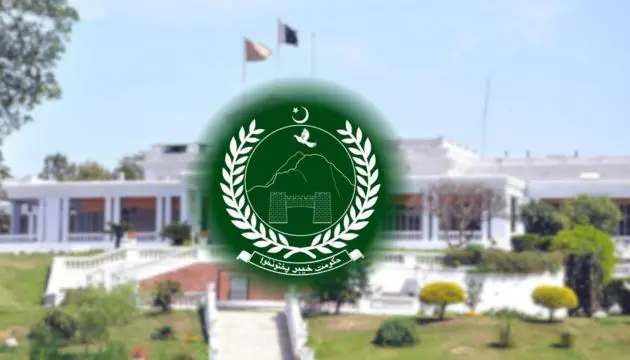PESHAWAR: The Khyber Pakhtunkhwa (KP) government has launched a new Immunisation Action Plan (IAP) aimed at ensuring 90% of children in the province are fully vaccinated against 12 preventable diseases by 2027.
Chief Minister Ali Amin Khan Gandapur formally launched the plan during a ceremony held at the Chief Minister’s Secretariat. Senior officials including Finance Adviser Muzammil Aslam, Health Adviser Ihtisham Ali, Additional Chief Secretaries Ikramullah Khan and Abid Majeed, Health Secretary Shahidullah Khan, and representatives of international partner organisations attended the event.
The chief minister said the government is committed to eliminating polio and protecting children from other deadly diseases. He said the new plan reflects the province’s seriousness towards improving immunisation efforts.
“Implementing this plan on the ground is the real task,” he said, urging all departments, institutions, and district administrations to fully support its execution. “It may be challenging, but it is not impossible. With teamwork and hard work, we can meet our goals.”
He also announced that Rs8 billion has been allocated in the current budget for the immunisation programme, and thanked international partners for their continued support.
— ALSO READ —
Over 41,500 pilgrims return via PIA; Hajj 2026 registration open till July 11
Chief Secretary Shahab Ali Shah highlighted that KP currently has the lowest vaccination rate in the country, with major challenges in southern districts. He called the new target ambitious but achievable due to improved capacity and resources.
He stressed that both urban and remote rural areas will be covered under the plan. According to officials, only 55% of children in the province are currently fully immunised. The new plan aims to vaccinate around 1.42 million children under the age of two each year.
The IAP targets 12 diseases: polio, measles, tetanus, hepatitis B, typhoid, mumps, diphtheria, pertussis (whooping cough), pneumonia, rubella, meningitis, and rotavirus.
The plan includes an eight-point strategy to ensure no child is left out, with a focus on underserved and hard-to-reach areas. Special teams will reach children in security-sensitive or remote regions.
— ALSO READ —
Textile mills to pay cotton cess in four installments under new pact
To support outreach, the government has increased the transport budget from Rs80 million to Rs448 million over three years. Over 1,800 immunisation centres — including basic health units and rural health centres — will be upgraded with trained staff, essential vaccines, working cold storage, and a 15-day backup supply of syringes.
In cities and towns where vaccination rates are low, targeted immunisation drives will be held. The first such campaign will start in Peshawar to identify and vaccinate all missed children.
To ensure transparency and success, the plan includes monthly and quarterly performance reviews based on data such as vaccinator performance and coverage. In addition, third-party surveys will be conducted every six months to verify government data and locate underserved areas.
Meanwhile, a province-wide survey is also underway to find out why some families avoid getting their children vaccinated.














